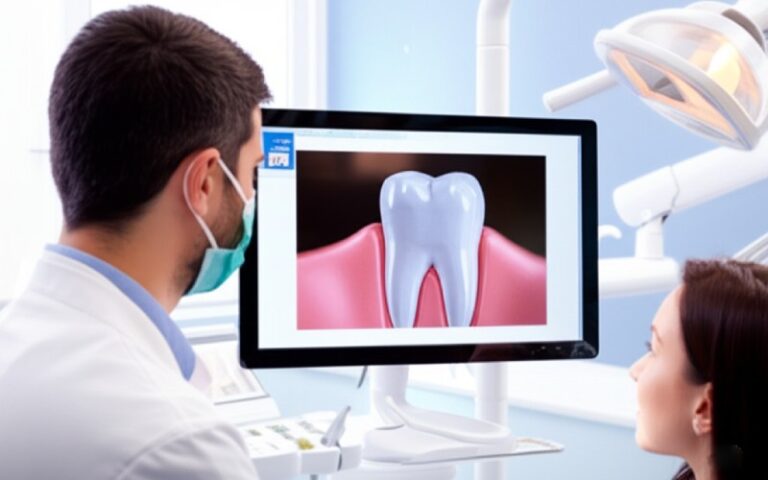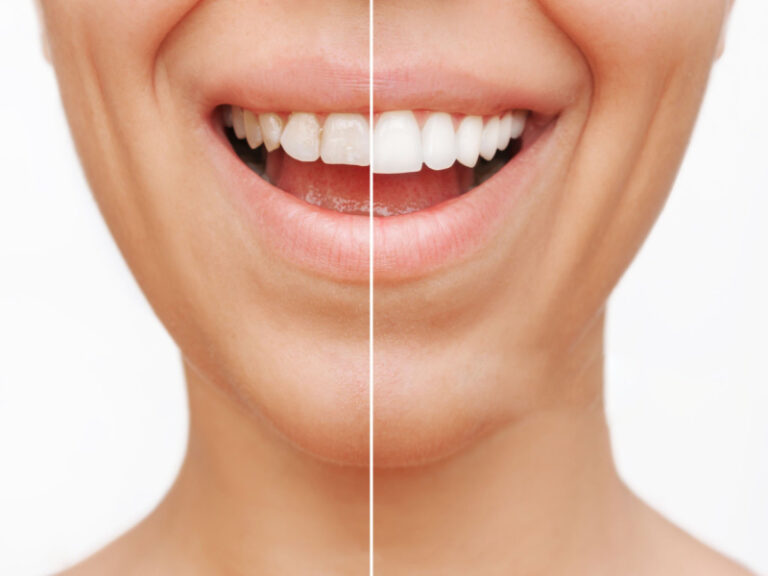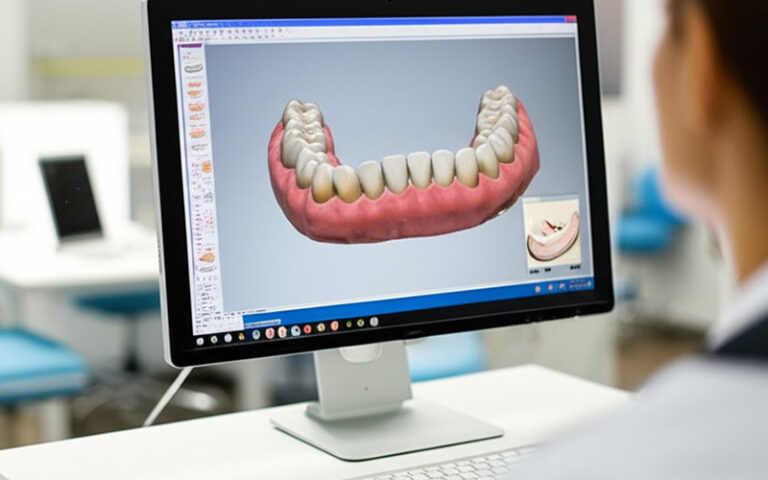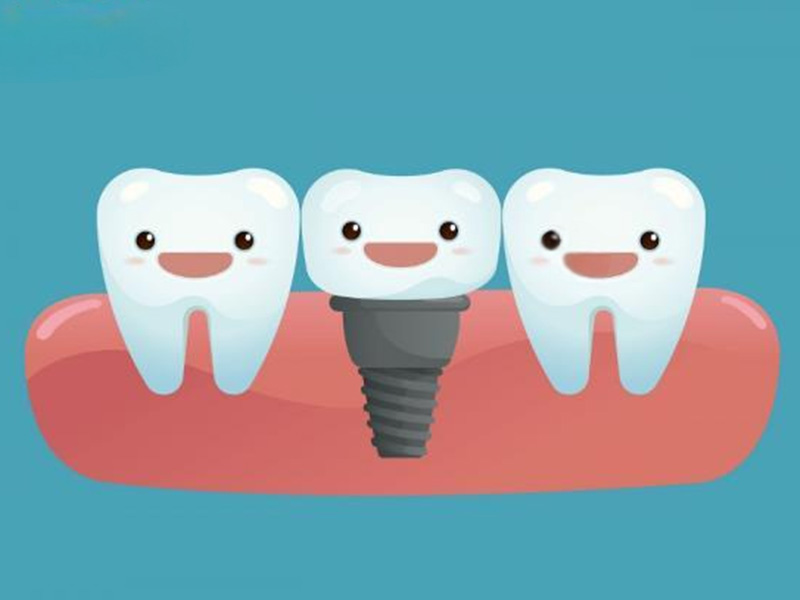
The Most Common Adolescent Dental Issues: A Guide to Teen Oral Health
This article is for any parent or teen who wants to understand the unique dental challenges of adolescence. I’m going to walk you through the most common dental issues teens face, from cavities and braces to wisdom teeth and the dangers of oral piercings. We’ll talk about why these problems happen and what you can do about them. My goal is to give you the simple, clear information you need to keep a teenager’s smile healthy and bright for a lifetime.
Table des matières
Why Are the Teen Years So Tough on Oral Health?
The teen years bring a lot of freedom, but with that freedom come new dental challenges. Teenagers often have more control over their own food choices. This can lead to more sugary drinks and snacks, which are bad for teeth. Busy schedules with school, sports, and social events can also make regular brushing and flossing seem less important. Many teens simply forget or feel too tired to keep up with good oral hygiene habits.
On top of that, the body itself is going through big shifts. Hormonal changes during adolescence can make the gum tissue more sensitive and prone to swelling or bleeding. This can be an early sign of gum problems. Because so much is happening, it’s easy for both parents and teens to overlook the new risks to their oral health. It’s a time when good habits can slip, making regular dental care more important than ever.
Is My Teen at High Risk for a Cavity?
A cavity is a hole in a tooth caused by decay. This decay happens when bacteria in your mouth feed on sugar and create acid. This acid eats away at the tooth’s hard outer layer, called the enamel. Because teenagers often consume more sugary snacks and sodas, their risk for getting a cavity goes way up. The bacteria and acid form a sticky film on teeth called plaque. If it’s not removed, the acid will continue to damage the enamel, and that can lead to cavities.
The best way to fight this is with simple, consistent hygiene. Brushing and flossing every day is the most important step. Brushing removes plaque from the surface of the teeth, while the floss gets into the tight spaces between them. Without good oral hygiene, the risk for tooth decay gets much higher. If you see white or dark spots on your teen’s teeth, it might be a sign of decay, and it’s time to see a dentist.
What is Gum Disease and Can Teenagers Get It?
Yes, teenagers can absolutely get gum disease. The most common form in teens is called gingivitis. This is the earliest stage of gum disease, and it happens when plaque builds up along the gum line. The common symptoms are red, swollen, or bleeding gum. You might notice a little blood in the sink after your teen brushes their teeth. Hormonal changes can make the gum more reactive to this plaque, which is why teenagers often see these issues.
If left untreated, gingivitis can turn into a more serious problem called periodontal disease. This can damage the bone that supports the teeth. The good news is that early-stage gum disease is usually reversible. It just takes better brushing and flossing to remove the plaque causing the problem. Regular cleanings at the dentist’s office are also key to keeping the gum healthy and preventing long-term damage.

Does My Adolescent Need a Brace? The World of Orthodontic Treatment
Many teens need some form of orthodontic work. If you notice your adolescent has crooked or misaligned teeth, it might be time to think about getting a brace. It’s not just about looks. Teeth that are crowded or crooked are harder to clean. This can increase the risk for a cavity and gum disease. A good bite also helps with chewing food properly and can prevent jaw problems later in life.
When I was a kid, a metal brace was the only choice. Today, there are more options. Traditional metal braces are still very effective. But now, there are also clear or tooth-colored braces that are less noticeable. There are even clear, removable aligners, like Invisalign, that can straighten teeth without any metal at all. A dentist or orthodontist can look at your teenager’s teeth and help you choose the best course of action for a healthy smile.
What’s the Deal with Wisdom Teeth?
Wisdom teeth are the last set of molars to grow in. They are also called third molars. They usually start to appear in the late teen years or early twenties. For some people, wisdom teeth cause no dental issues at all. But for many teens, there isn’t enough room in the jaw for them to come in properly. This can cause a lot of dental problems.
When a wisdom tooth doesn’t have room, it can get stuck under the gum or grow in at a bad angle. This is called an impacted tooth. An impacted molar can cause pain, swelling, and can even damage the teeth next to it. Your dentist will watch your teen’s wisdom teeth with X-rays. If they see that the wisdom teeth will cause problems, they will likely recommend having them removed.
Are Oral Piercings a Real Dental Health Danger?
Oral piercings, like those in the tongue, lip, or cheek, are a big risk. The hard metal or plastic jewelry can easily chip or crack teeth while you are talking or eating. The mouth jewelry can also rub against the gum, causing it to wear away. This can expose the tooth root and make it very sensitive.
Beyond that, the mouth is full of bacteria, and a piercing creates an open wound. This can lead to serious infections. In some rare and scary cases, an infection can lead to bigger problems like blood clots or even a brain abscess. The American Dental Association advises against them for a reason. There are safer ways for teens to express themselves that don’t put their long-term oral health at risk.
How Can a Mouthguard Protect My Teen’s Healthy Smile?
If your teen plays sports, a protège-dents is one of the most important pieces of gear they can own. It is a soft plastic piece that fits over the teeth. A mouth guard protects against broken teeth, and it can also prevent injuries to the jaw, lips, and face. It works by absorbing the force of a hit, so your teeth don’t have to. It’s a simple and cheap way to prevent a painful and expensive dental emergency.
A mouthguard can also help teens who have a habit of grinding your teeth at night. This is called bruxism, and it can wear down enamel and cause jaw pain. A dentist can make a special mouth guard to be worn at night to protect the teeth from damage. Whether for sports or for grinding, a mouthguard is a key tool for protecting your child’s teeth.
What About Teeth Whitening for My Teenager?
It’s normal for teenagers to want a bright, white smile. There are many products in stores that promise to whiten teeth. But it’s a good idea to talk to a dentist before your teenager starts any whitening treatment. The dentist can make sure their teeth and gum are healthy enough for it. They can also talk about what is causing the staining in the first place.
The dentist may recommend professional whitening in the office, which is the safest and most effective method. They can also suggest good over-the-counter products. The most important thing for a bright smile is keeping teeth clean. Good brushing and flossing habits can remove surface stains and keep teeth looking healthy and bright naturally. It’s always best to start there.
What are the Dangers of Tobacco Use for Teen Oral Health?
There is no way to sugarcoat this: tobacco use is terrible for oral health. Smoking or chewing tobacco can cause ugly yellow and brown stains on teeth. It leads to bad breath that is hard to get rid of. But the dangers go much deeper than that. Tobacco use greatly increases the risk for gum disease because it reduces blood flow to the gum.
The scariest risk of all is oral cancer. Using tobacco in any form, including e-cigarettes and smokeless tobacco, dramatically raises the risk of getting cancer of the mouth, throat, or lips. In fact, one can of smokeless dip can deliver as much nicotine as 60 cigarettes. The best advice I can give is to help your teen avoid tobacco completely.
What is TMJ and Can It Affect My Teen?
TMJ stands for temporomandibular joint disorder. That’s a long name for a simple problem with the jaw joint. The temporomandibular joint is the hinge that connects your jaw to your skull. When there is a problem with this joint or the muscles around it, it can cause pain and discomfort. This is a common issue that we see in our pediatric dentistry practice.
The common symptoms of TMJ include pain in the jaw, face, or neck. Some people hear a clicking sound when they open or close their mouth. Headaches and trouble chewing are also signs. Possible causes include stress, grinding your teeth, or an injury to the jaw. If your teen has these symptoms, you should schedule an appointment with your dentist. They can help figure out what’s wrong and suggest the best way to treat the pain.
How Can We Promote Optimal Oral Health?
Keeping a teenager’s smile healthy is a team effort. It takes work from the teen, the parents, and the dental team. The teenage years are a great time to build habits for long-term oral health. The most important thing is good oral hygiene. This means brushing and flossing twice a day, every day. It also means healthy eating and limiting sugary drinks and snacks that lead to decay.
Regular dental visits for a check-up and cleanings are also key. Your dentist can spot early signs of trouble, like a small cavity or the start of gum disease, before they become big problems. The goal of pediatric dental care is providing comprehensive support as a child grows. We want to help you understand the unique dental needs of teenagers and give you the tools to help them achieve optimal oral health.

Key Takeaways to Remember:
- Diet Matters: Teenagers often eat more sugary foods and drinks, which increases their risk for a cavity. Encourage healthy eating and drinking water.
- Hygiene is Key: Busy schedules can make teens skip brushing and flossing. Remind them that good oral hygiene is the best defense against tooth decay and gum disease.
- Watch for Wisdom Teeth: Wisdom teeth usually appear during the late teen years and can cause pain and crowding. Regular dental X-rays are important.
- Protect Their Smile: A mouthguard is essential for any teen playing sports to prevent broken teeth and other mouth injuries.
- Avoid Bad Habits: Oral piercings and tobacco use pose serious risks to dental health, from chipped teeth to oral cancer.
- Team Up with Your Dentist: Regular dental visits are crucial during the teen years. Your dental team can catch problems early and provide the specific care your adolescent needs.








